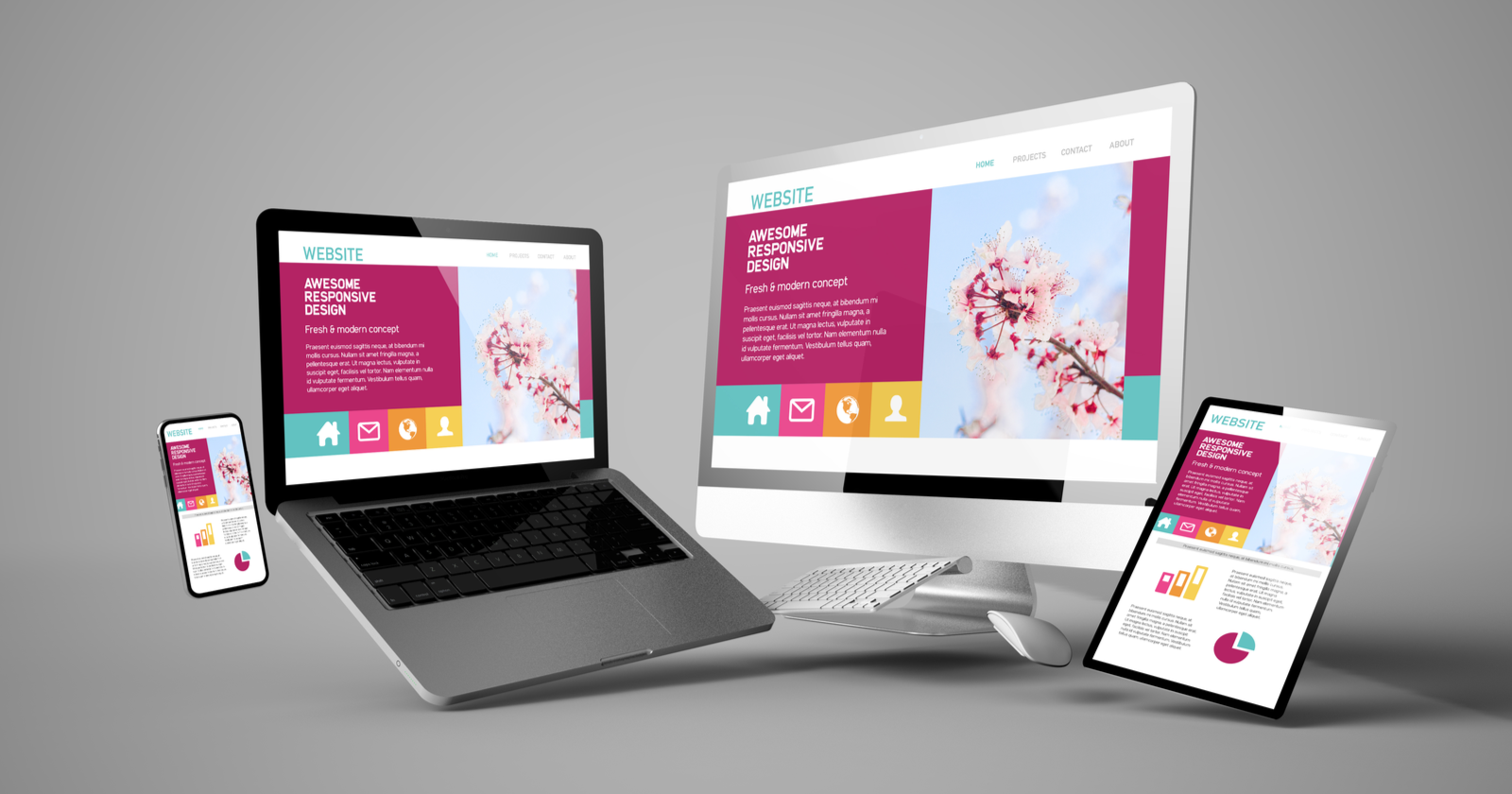Discovering the Necessary Principles of Effective Website Design for Modern Businesses
In the quickly developing electronic landscape, effective internet layout has come to be a foundation for modern-day organizations intending to establish a competitive edge. Central to this method are principles such as user-centered style, visual hierarchy, and receptive layouts, which collectively improve customer engagement and contentment. As companies aim to enhance their on-line existence, comprehending exactly how these elements link can considerably affect business results. The ramifications of these concepts extend past mere looks, prompting a better exam of their function in cultivating depend on and loyalty among users. What elements should businesses prioritize to truly reverberate with their target market?
User-Centered Style
User-Centered Layout (UCD) is a pivotal approach in web development that focuses on the needs and experiences of customers throughout the layout procedure. By placing customers at the leading edge, UCD ensures that internet sites are not just useful yet additionally instinctive and engaging. This technique entails extensive research study, consisting of individual meetings, surveys, and use testing, to collect insights on customer behaviors, preferences, and discomfort factors.
The UCD procedure commonly follows numerous stages: comprehending user requirements, ideation, prototyping, and testing. In the preliminary phase, developers perform thorough individual study to inform their style decisions. Subsequent stages entail developing wireframes and models that symbolize the customer's demands, enabling for iterative screening and refinement based upon customer feedback.
Embracing a UCD strategy boosts customer fulfillment, ultimately resulting in enhanced involvement and retention. Internet sites created with UCD concepts are most likely to resonate with users, as they deal with particular challenges and provide tailored services. In an era where user experience is vital, services that welcome UCD can acquire an affordable side, guaranteeing their electronic platforms successfully fulfill the evolving assumptions of their audience.
Visual Pecking Order
When creating a web site, comprehending visual power structure is vital for assisting users' attention and boosting their general experience. Web design agency. Visual hierarchy describes the plan and presentation of components on a page, which influences how users perceive and connect with material. By purposefully making use of size, shade, contrast, and spacing, developers can produce a clear course for users to follow, stressing crucial information and contacts us to action
One of the most effective visual hierarchies utilize a mix of typography and images to develop focal points. For instance, bigger typefaces and bold colors can draw instant interest to headlines, while lighter tones and smaller sized sizes can be used for secondary info. Additionally, white space plays an essential function in separating elements, stopping mess, and enabling customers to take in material without really feeling overwhelmed.
Incorporating a rational flow right into the style is additionally essential. Individuals must have the ability to navigate naturally from one section to an additional, led by aesthetic hints. Eventually, a well-executed aesthetic power structure not just improves usability but likewise adds to the overall aesthetic allure of the internet site, cultivating engagement and motivating individuals to check out further.
Receptive Style

Executing receptive design is critical to accommodate the expanding variety of mobile individuals. Research studies indicate that a considerable section of web website traffic now originates from mobile tools, making it critical for organizations to prioritize this design philosophy. A responsive website not only improves customer engagement yet likewise positively influences SEO, as internet search engine prefer mobile-friendly web sites in their positions.
In addition, responsive design simplifies the maintenance and updating processes, as a single website can serve all devices, lowering the requirement for numerous Recommended Reading variations. This performance enables organizations to provide a regular brand message and user experience across systems. Eventually, receptive design is not simply an aesthetic selection; it is a critical need in today's electronic landscape.
Rapid Loading Times

Numerous factors add to filling times, including picture optimization, web server action view time, and the usage of efficient coding techniques. Large, unoptimized photos can substantially decrease a site, so making use of formats like WebP or pressing images without endangering quality is important. Furthermore, using material delivery networks (CDNs) can lessen latency by distributing material across multiple servers, bringing it closer to the user's area.
In addition, reducing HTTP requests and making use of asynchronous loading for JavaScript can simplify the rendering process. On a regular basis bookkeeping website performance with tools like Google PageSpeed Insights or GTmetrix allows services to identify bottlenecks and carry out needed renovations. By concentrating on fast packing times, business not just improve customer experience however additionally enhance search engine rankings, eventually driving more traffic and raising revenue.
Consistency and Branding
Developing consistency in branding is vital for producing a natural customer experience across all electronic systems. This uniformity not just enhances brand recognition but likewise fosters count on and loyalty amongst users. When companies preserve uniformity in their visual elementsâEUR" such as typefaces, shades, logo designs, and imageryâEUR" they interact a clear and specialist identity that reverberates with their target audience.
Moreover, constant useful link branding across internet sites, social media sites, and email interactions guarantees that users can conveniently recognize and involve with the brand, despite the platform they are utilizing. This recognition is essential in a saturated digital environment where consumers are bombarded with details and options.
Along with visual uniformity, the tone and messaging need to also line up with the brand name's identity. A unified voice throughout all material enhances the brand name's worths and mission, making it extra relatable and reliable to customers.
To attain this, organizations ought to develop extensive brand guidelines that detail the key components of their branding technique. By adhering to these guidelines, firms can effectively line up all internet style initiatives with their overarching brand name narrative, eventually improving customer experience and driving involvement.
Conclusion
Responsive style suits diverse gadgets, making sure ideal user experience. By incorporating these aspects, businesses can establish an engaging online existence that fosters user contentment and builds enduring trust fund.